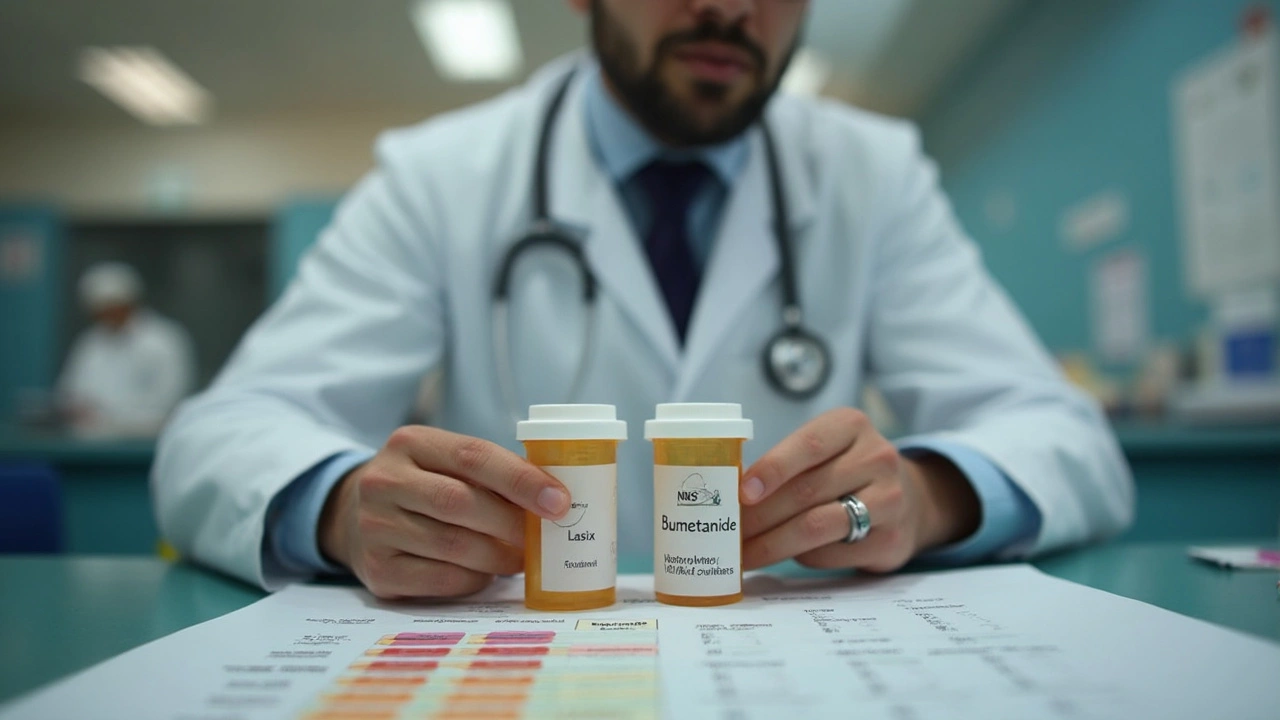Renal Function: What Your Kidneys Do and Why It Matters
If you’ve ever heard a doctor say “check your renal function” and felt lost, you’re not alone. Your kidneys are tiny filters that clean blood, balance fluids, and control electrolytes. When they work well, they keep you feeling normal; when they slip, even everyday meds can cause big problems. This page breaks down the basics, shows how common drugs tie into kidney health, and gives you easy steps to stay on top of your renal function.
How Medications Interact with Kidney Health
Many prescriptions are cleared by the kidneys. If your renal function is reduced, the drug can linger longer, raising the risk of side effects. For example, spironolactone (used for acne or high blood pressure) needs careful dosing because it can cause electrolyte imbalance when kidneys can’t excrete it properly. The same goes for pain relievers like ketorolac (Toradol) – they can stress the kidneys, especially if you’re dehydrated.
Blood‑pressure meds such as terazosin can affect uric acid levels, which matters for gout patients who already have kidney strain. Antidepressants like venlafaxine (Effexor) are generally safe, but high doses may need adjustment if kidney function drops. Even over‑the‑counter supplements, like high‑dose vitamin D, can pile up in people with chronic kidney disease.
The rule of thumb: anytime a drug is labeled “adjust dose in renal impairment,” talk to your pharmacist or doctor about a blood test that measures creatinine and calculates the eGFR (estimated glomerular filtration rate). That number tells you how fast your kidneys are filtering.
Practical Steps to Keep Your Kidneys Working
1. Stay hydrated, but don’t overdo it. Drinking enough water helps kidneys flush waste, but too much can dilute electrolytes, especially if you’re on diuretics. Aim for about 8 cups a day unless your doctor says otherwise.
2. Know your blood pressure. High pressure damages tiny kidney vessels. Check it at home or during routine visits and keep it under 130/80 mm Hg if possible.
3. Watch your meds. Keep a list of every prescription, over‑the‑counter pill, and supplement. When a new drug is added, ask if the dose needs tweaking for kidney health.
4. Limit salty and processed foods. Sodium forces kidneys to work harder to balance fluids. Reducing salt can lower blood pressure and ease kidney workload.
5. Get regular labs. A simple blood test for creatinine and a urine dip for protein can catch early kidney issues before symptoms appear.
6. Exercise wisely. Light to moderate activity improves circulation and helps control blood sugar, both of which protect kidneys. Avoid extreme endurance workouts if you have existing kidney disease.
7. Manage diabetes tightly. High blood sugar is a leading cause of kidney damage. Monitoring A1C, staying on approved meds, and following your diet plan make a huge difference.
When you combine these habits with a clear conversation with your healthcare team, you reduce the chance that a needed medication turns into a kidney problem. If you ever notice swelling, dark urine, or persistent fatigue, flag it fast – those can be early signals that your kidneys need attention.
Bottom line: kidneys may be small, but they play a massive role in how your body handles drugs and fluids. Understanding your renal function, checking lab numbers regularly, and adjusting meds when needed keeps you healthy and avoids nasty side effects. Keep this guide handy, share it with anyone who’s starting a new prescription, and stay proactive about kidney care.

